50+ SAMPLE Catering Request for Proposal
-
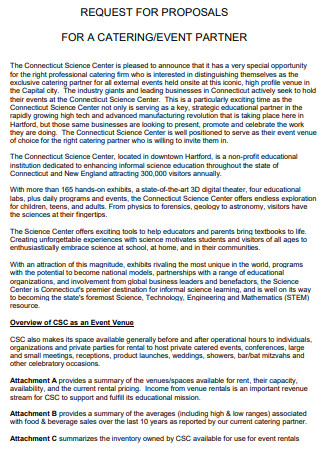
Catering Event Partner Request for Proposal
download now -
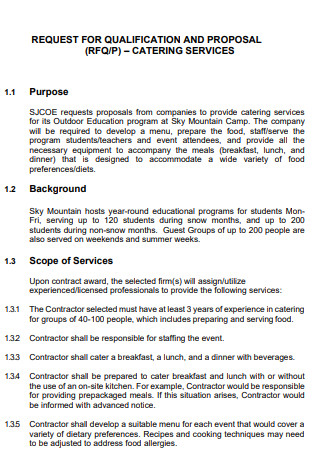
Catering Request for Qualification and Proposal
download now -
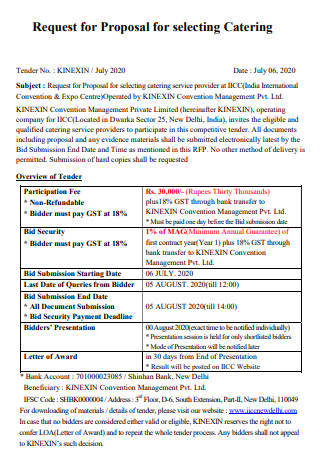
Selecting Catering Request for Proposal
download now -
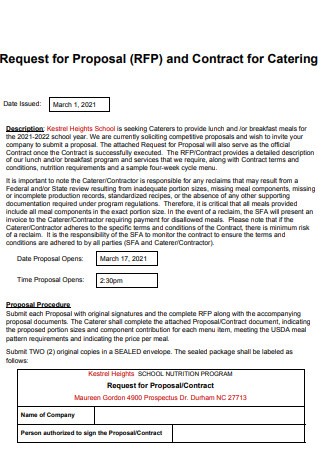
Contract for Catering Request for Proposal
download now -
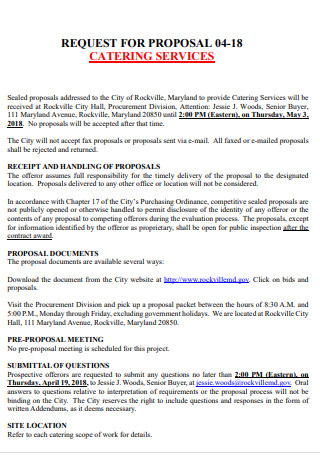
Catering Service Request for Proposal
download now -
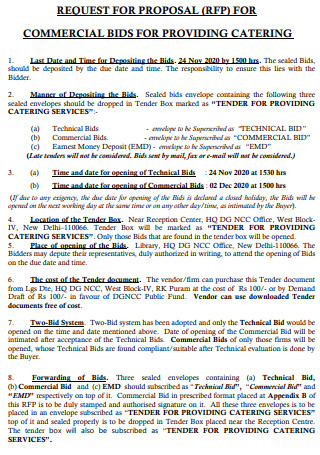
Catering Bid Request for Proposal
download now -
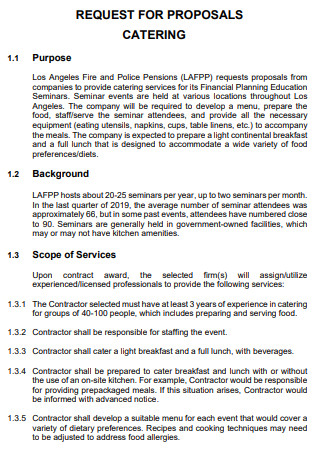
Catering Request for Proposal
download now -
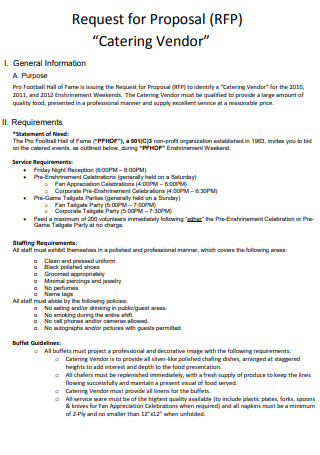
Catering Vendor Request for Proposal
download now -
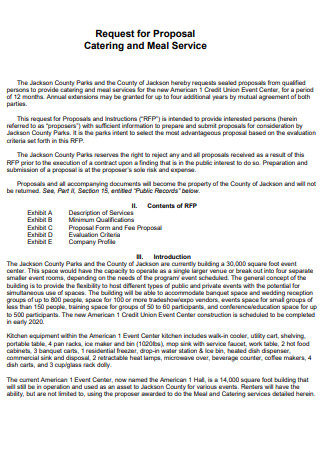
Catering and Meal Service Request for Proposal
download now -
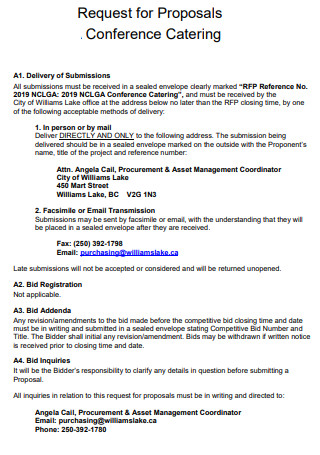
Conference Catering Request for Proposal
download now -
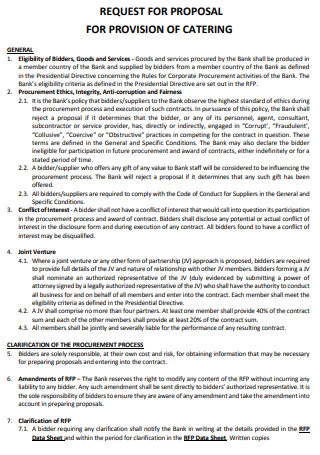
Provision of Catering Request for Proposal
download now -
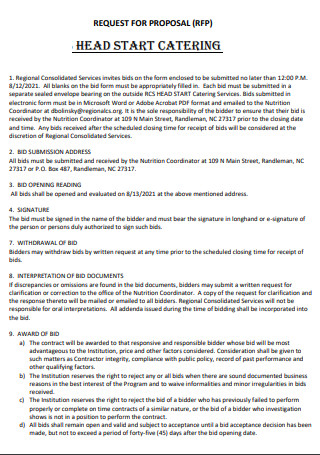
Head Start Catering Request for Proposal
download now -
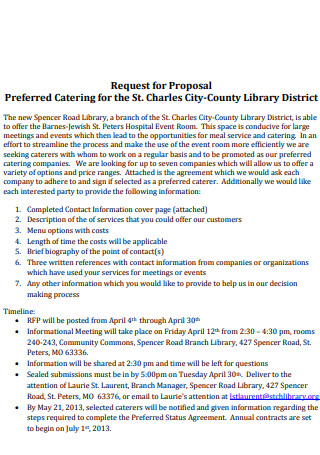
Preferred Catering Request for Proposal
download now -
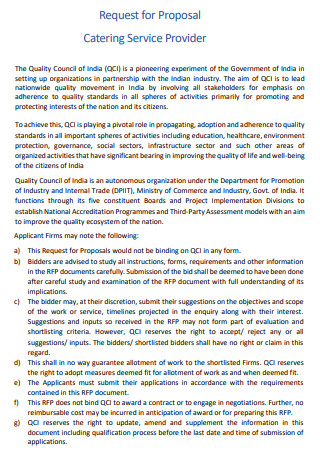
Catering Service Provider Request for Proposal
download now -
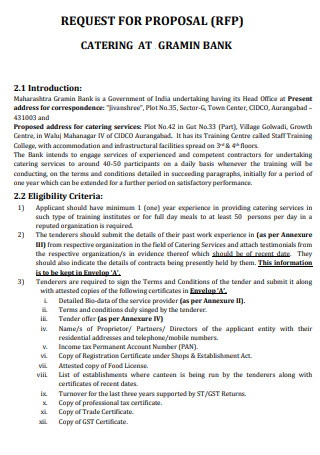
Catering at Bank Request for Proposal
download now -
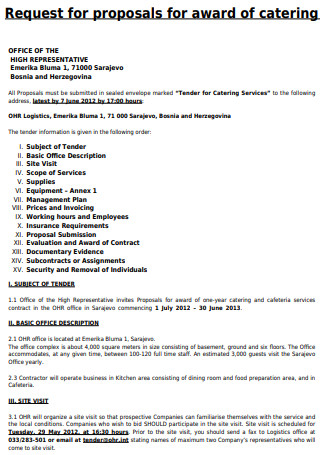
Award of Catering Request for Proposal
download now -
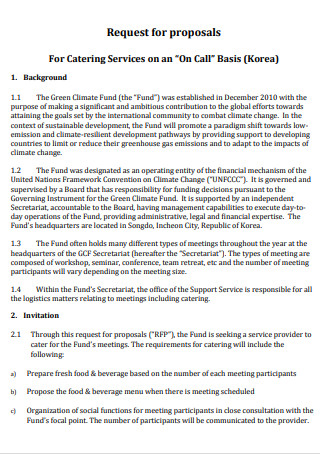
On Call Catering Request for Proposal
download now -
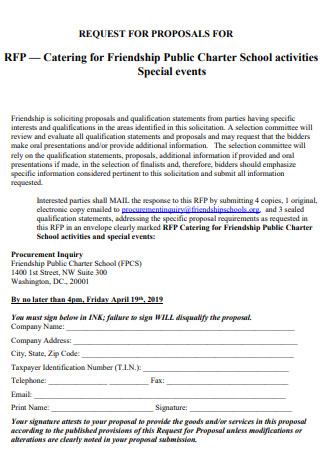
Catering for School Activities Request for Proposal
download now -
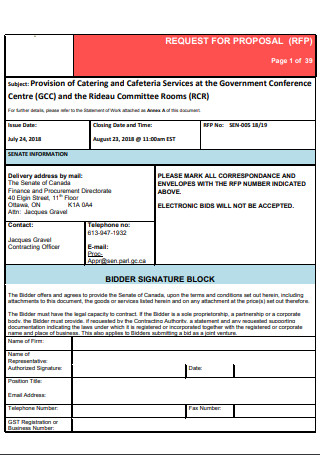
Catering and Cafeteria Services Request for Proposal
download now -
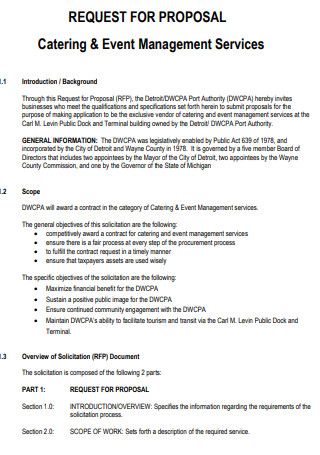
Catering & Event Management Request for Proposal
download now -
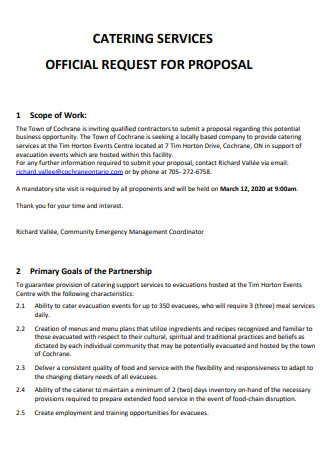
Official Catering Request for Proposal
download now -
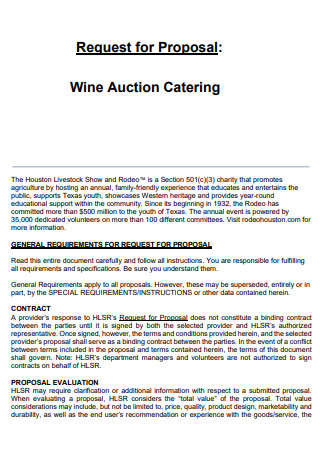
Wine Auction Catering Request for Proposal
download now -
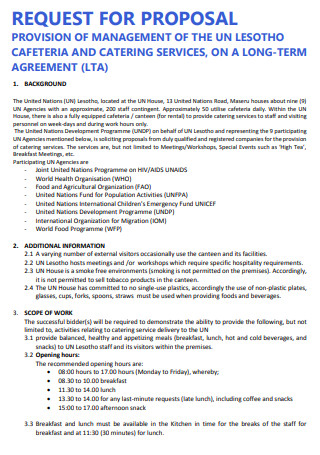
Catering Agreement Request for Proposal
download now -
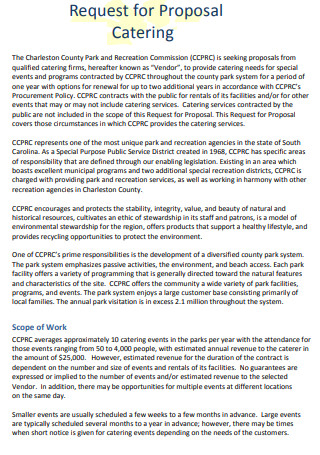
Sample Catering Request for Proposal
download now -
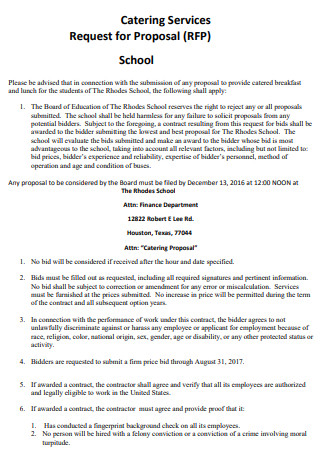
Catering at School Request for Proposal
download now -
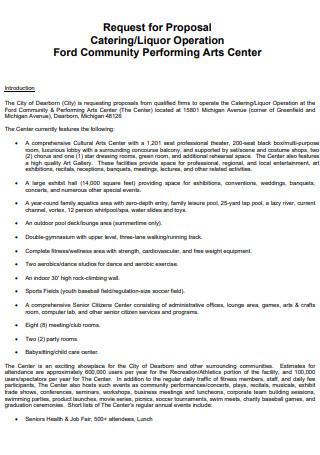
Catering Liquor Operation Request for Proposal
download now -
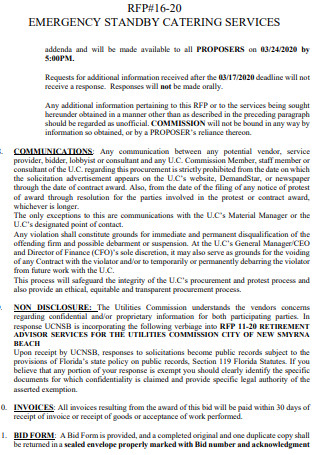
Emergency Standby Catering Request for Proposal
download now -
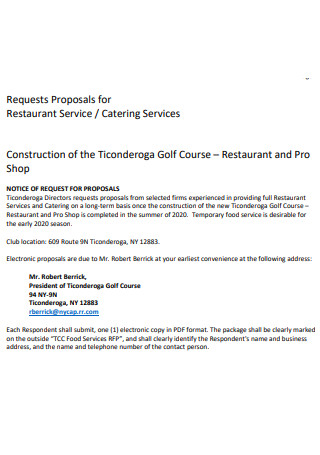
Restaurant Catering Service Request for Proposal
download now -
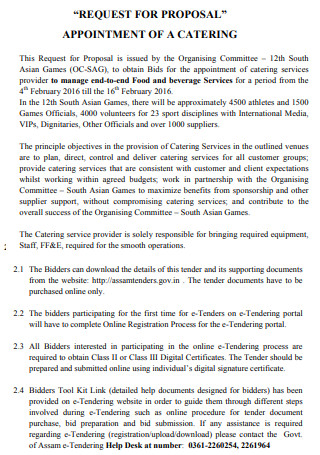
Appointment of Catering Request for Proposal
download now -
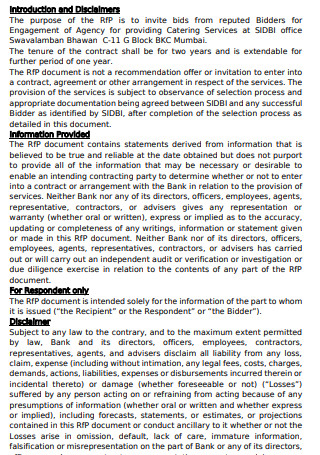
Finalizing Catering Request for Proposal
download now -
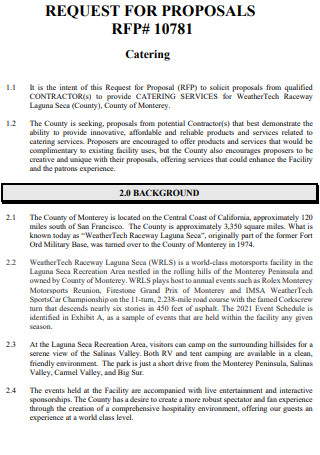
Simple Catering Request for Proposal
download now -
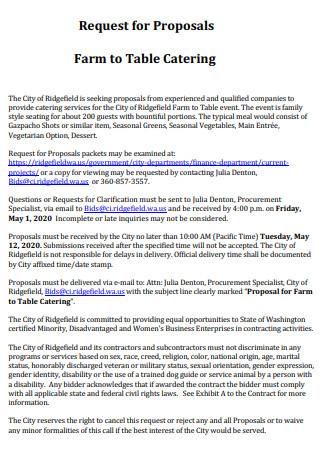
Farm to Table Catering Request for Proposal
download now -
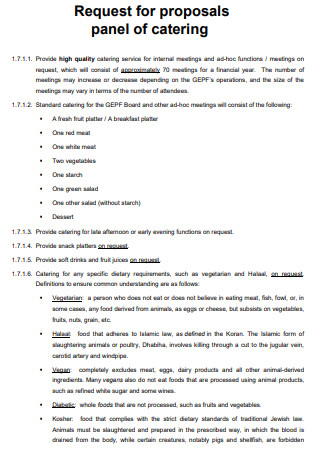
Panel of Catering Request for Proposal
download now -
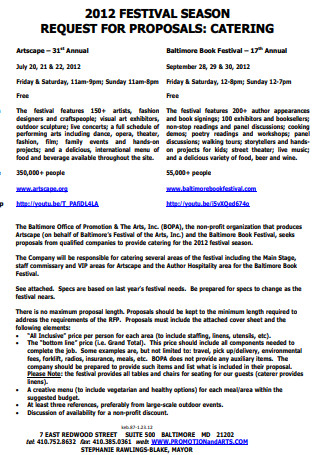
Festival Season Catering Request for Proposal
download now -
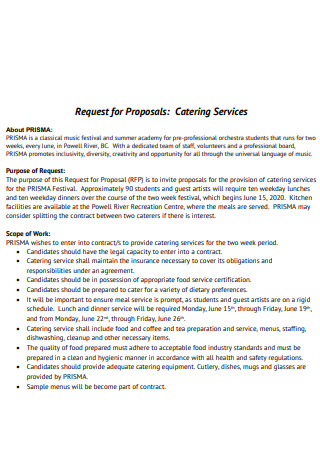
Basic Catering Request for Proposal
download now -
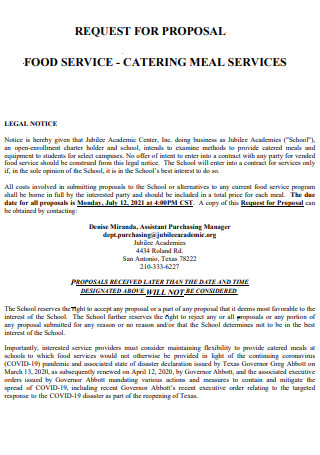
Food Service Catering Request for Proposal
download now -
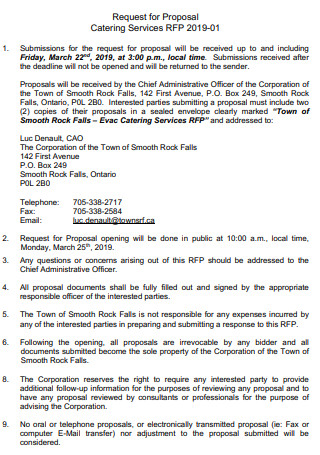
General Catering Request for Proposal
download now -
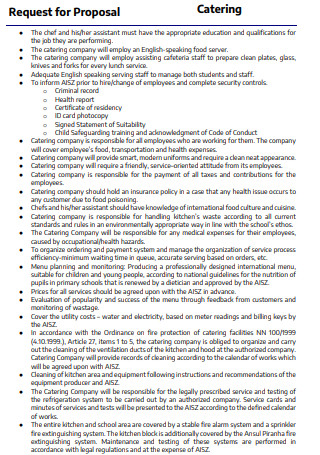
Free Catering Request for Proposal
download now -
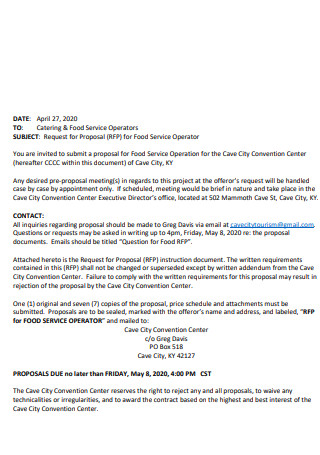
Catering & Food Service Operators Request for Proposal
download now -
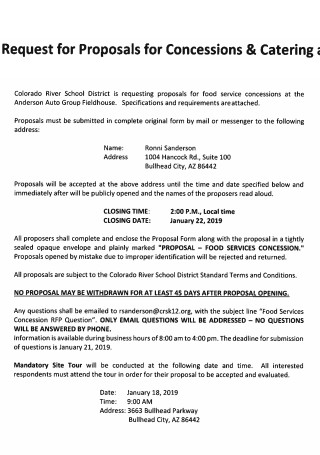
Concessions and Catering Request for Proposal
download now -
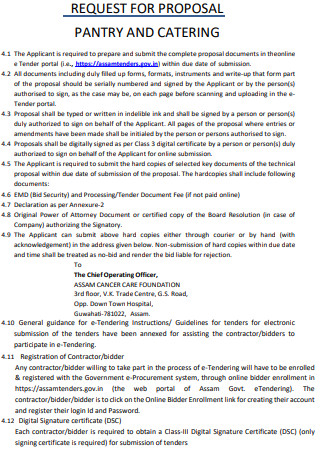
Pantry and Catering Request for Proposal
download now -
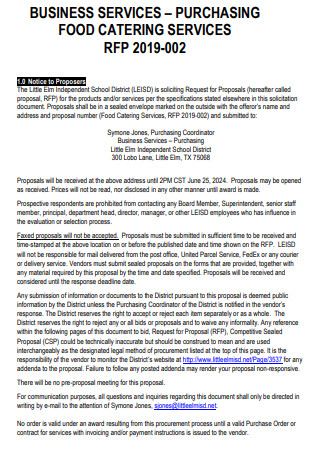
Purchasing Food Catering Request for Proposal
download now -
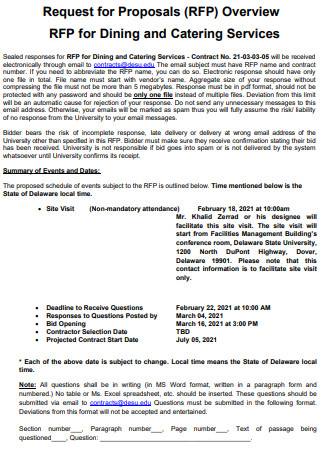
Dining and Catering Request for Proposal
download now -
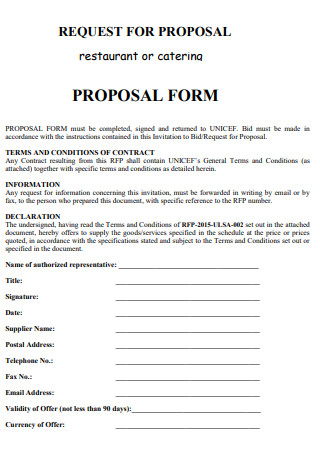
Provision of Catering Request for Proposal Form
download now -
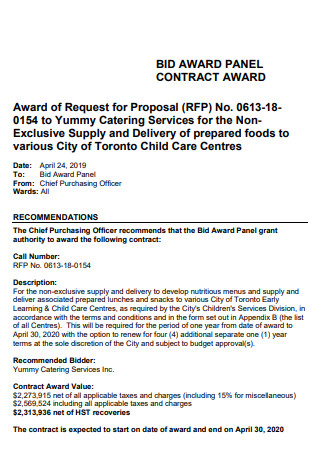
Catering Award of Request for Proposal
download now -
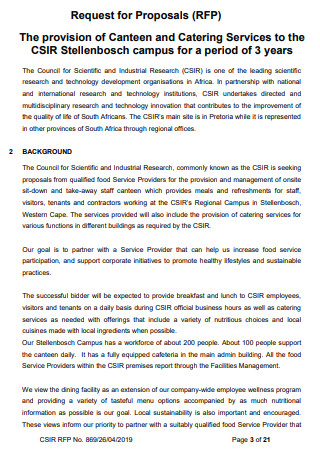
Canteen and Catering Services Request for Proposal
download now -
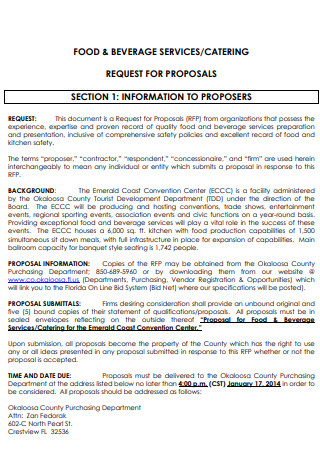
Beverages Catering Services Request for Proposal
download now -
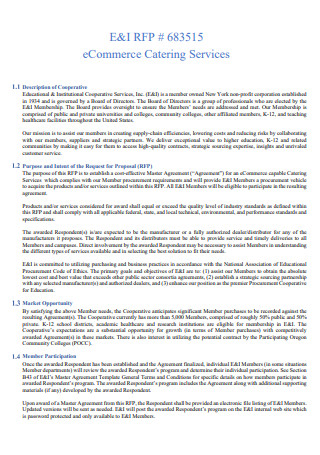
eCommerce Catering Request for Proposal
download now -
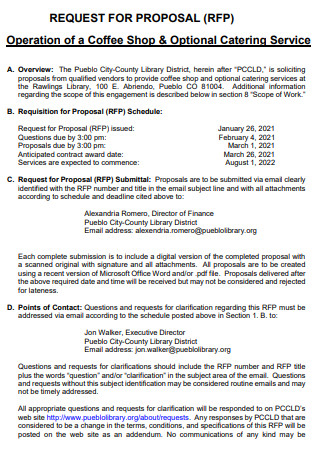
Optional Catering Request for Proposal
download now -
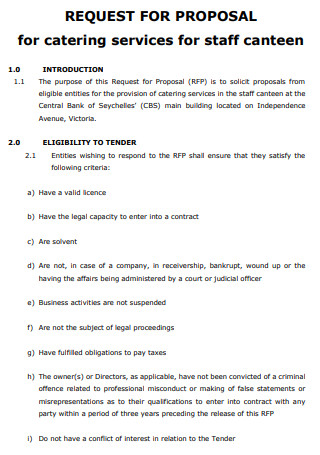
Catering for Staff Request for Proposal
download now -
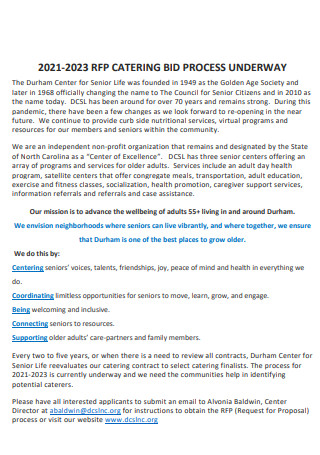
Catering Bid Process Request for Proposal
download now
FREE Catering Request for Proposal s to Download
50+ SAMPLE Catering Request for Proposal
What Is a Catering Request For Proposal?
Tips When Choosing a Caterer
Sample Specifications In a Catering Request For Proposal
How to Create a Catering Request For Proposal
FAQs
What is a catering proposal?
What is RFP in the food industry?
What are the four types of catering?
What Is a Catering Request For Proposal?
A catering request for proposal is a formal request submitted by a client or an event organizer looking to contract the services of a catering business and provide food or meals to the former’s event.
According to Statista, the market size of the catering sector saw an increase in 2021. From a sizable dip in 2020 of 14.22 billion U.S. dollars, the catering business market size for 2021 was predicted to reach an estimated 15.36 billion U.S. dollars.
Tips When Choosing a Caterer
Depending on the scale of your event, choosing the right caterer can be a make or break deal. Food is one of the most basic items on any event planner’s checklist. And deciding on who will provide the food in your event is a crucial decision. If you are planning an event and are still undecided as to who to select as a caterer, it might be helpful to keep the following tips in mind:
Sample Specifications In a Catering Request For Proposal
There are different kinds of requests for proposals. It can cover a wide variety of industries and fields of work. For a catering request for proposal, it can cover more than just food-related information, it must also be targeted and specific enough for the vendor’s sake. The following examples below are some basic specifications that you should not neglect to include in your request for proposal.
How to Create a Catering Request For Proposal
When crafting a catering request for proposal, it is largely similar to writing a basic request for proposal; only it is meant to accommodate catering-related requirements. If you want more ease and convenience, using a ready-made template from the collection above will save you a lot of time. Once you have selected a sample template that suits your needs, simply follow the quick tutorial guidelines below.
Step 1: Background
The first step in creating a catering request for proposal is to introduce yourself and offer a brief background of your business or company. The vendor needs to have a general idea of your business before entering into a formal agreement. You do not necessarily have to give a very detailed description of yourself or your enterprise. A brief and straightforward overview will do. A request for proposal should still maintain a sense of formality and professionalism; so opening your catering RFP by offering a quick background helps to maintain that purpose.
Step 2: Goals and Objectives
After introducing yourself, the next step is to cite the reasons and objective of why you are requesting the caterer’s services. What is the main purpose of your need for catering? You can proceed to describing and explaining a little more on the nature of the event, the basic details (e.g., date, time, location), the timeline or the duration of the program. As the client or event organizer, you need to ensure that your needs are properly communicated. This will not only prevent any needless misunderstandings but will help promote a more productive and smooth business partnership.
Step 3: Terms and Requirements
Similar to a contract agreement, you need to lay down your terms and specify your event requirements. This entire section is dedicated to enumerating and detailing your specifications. Whether it is a particular food dish, menu modifications, equipment rental or even diet restrictions, you can include these guidelines in your catering request for proposal. As much as possible, you want you and the prospective supplier to be on the same page and avoid miscommunication. Documenting your requirements and establishing your terms in your catering RFP will promote greater clarity and transparency.
Step 4: Additional Queries
Once you have covered the terms and specifications, you can dedicate a section or portion of your catering request for proposal for any additional questions or inquiries that you want to ask prospective caterers. If you have any concerns or special requests regarding anything from payment guidelines, outside food, alcoholic beverages or liquor and other banquet-related matters.
FAQs
What is a catering proposal?
A catering proposal is a written formal proposal prepared by catering businesses to attract prospective clients. It is essentially a sales pitch meant to inform and persuade clients to engage the services of a caterer.
What is RFP in the food industry?
RFP or request for proposal in the food industry can be broadly generalized as a catering request for proposal wherein the interested party bids a caterer or multiple caterers to serve food at the former’s event.
What are the four types of catering?
According to Randy Peters Catering and Events, the four types of catering can be broadly categorized into wedding catering, corporate catering, social event catering and concession catering.
Catering is fundamental for a lot of major events. Whether it be a wedding, a birthday party or an international conference, the choice of a caterer is an important one for any event organizer or event planner. Browse the editable sample templates above to easily customize your own catering request for proposal!
